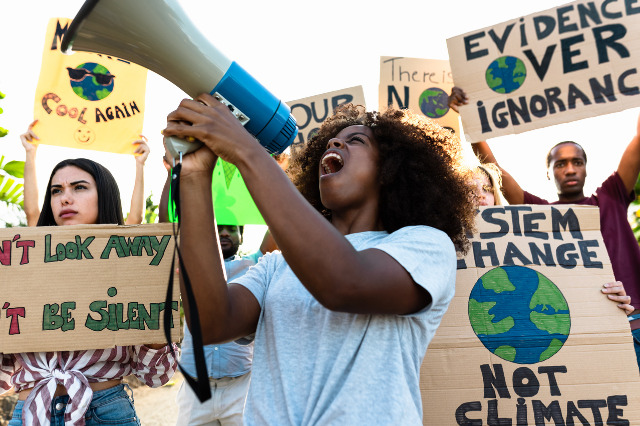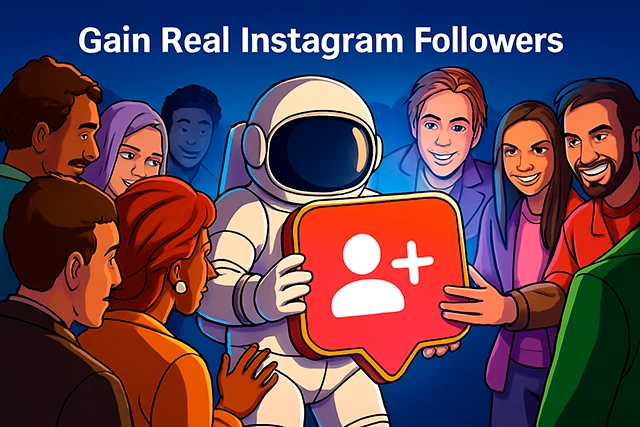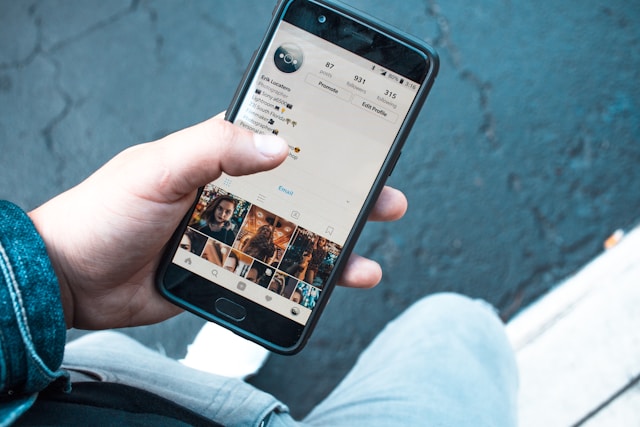The Evolution of Social Media as a Tool for Social Change

Have you ever pondered over the power of social media? It’s more potent than you might think. Today, it’s no longer simply a platform for sharing food pictures or pet videos. Instead, it has transformed into a powerful agent for social change. From raising awareness about critical issues, driving meaningful conversations, fostering community action or even propelling entire movements to the forefront – the influence and reach of social media in shaping society and culture are undeniable.
“Social media, once the realm of frivolous updates and viral videos, has stormed onto the stage as a leading driver of social change, powering movements across the globe and shifting the paradigms of influence.”
In this article, we’re going to explore some notable examples of successful social media campaigns and how they’ve morphed the landscape of advocacy, action, and change.
- #BlackLivesMatter: A movement that went viral, sparking global conversations around race, policing, and justice.
- #MeToo: An online revolution that forced a worldwide dialogue on sexual harassment and assault.
- #LoveWins: An emotionally charged campaign advocating for LGBTQ+ rights and marriage equality.
So, saddle up as we delve deeper into the power of social media in driving social change. You’ll be astonished at how 280 characters or a simple hashtag can ripple across the globe, mobilizing millions and making history.
Table of Contents
Social Change : The Evolution of Social Media Activism
Social media activism is a phenomenon that has rapidly grown over the last decade. It’s a fascinating intersection of technology and societal change, where voices from around the world can unite and amplify a cause. However, understanding its evolution requires looking back to see how it started and reflecting upon pivotal moments that have defined its current state.
The advent of social media in the mid-2000s offered a new platform for individuals to voice their opinions, concerns, or hopes to a broad audience. Inspired by this newfound communication tool, people began to utilize social media for more than just personal updates; they started to challenge the status quo and spark conversation around pressing societal issues. This marked the nascent stage of social media activism.
One such early example is the #KONY2012 campaign. This viral initiative was aimed at exposing the war crimes committed by Joseph Kony, leader of the Lord’s Resistance Army in Africa. The campaign was shared millions of times on Facebook, Twitter, and other platforms within just a few days. The global attention it generated demonstrated the potential of social media in effecting social change and gave rise to a new wave of digital activism.
A shift occurred during the Arab Spring, which started in 2010, where social media played a significant role in organizing protests and sharing real-time updates about the political turmoil in countries like Egypt and Tunisia. Activists leveraged platforms like Facebook and Twitter to mobilize the masses and broadcast their fight for democracy to the world. This event showcased the power of social media in amplifying the voices of the oppressed and marked a new chapter in its evolution.
Fast forward to today, and social media activism has become an integral part of our sociopolitical landscape. From movements advocating for climate change (#FridaysForFuture), racial justice (#BlackLivesMatter), to those promoting gender equality (#MeToo), social media platforms have become the battleground for civil discourse and a beacon for change.
To summarize, the evolution of social media activism can be charted through its humble beginnings as a platform for discussion, its maturation during global movements like #KONY2012 and the Arab Spring, and its current role as a powerful tool for catalyzing and sustaining social change. It’s clear that social media, with its innate ability to reach millions and to galvanize action, has forever changed the face of activism.
Empowering Voices Through Social Media
Social media, when appropriately harnessed, can serve as an outstanding amplifier for marginalized voices. Previously unheard or unnoticed communities now have the ability to speak directly to the world, making their concerns and narratives unarguably present in the public sphere. This section will examine how social media platforms have given a voice to the voiceless, championing social change.
Twitter, for instance, with its globally outreach, has become a megaphone for individuals seeking reform. Let’s consider trending hashtags such as #BlackLivesMatter or #MeToo. These powerful campaigns went above and beyond raising awareness; they sparked conversations, influenced policy changes, and altered societal norms. They demonstrated that social media was not just another channel for communication, but a potent driver for social activism.
The voice of the voiceless, once unheeded, is now amplified on social media.
Of course, other platforms also provide similar avenues for change. Instagram’s story feature, for example, has been used by activists to share real-time updates from protests or actions, providing an unfiltered look into the realities of these movements. Facebook offers tools for organizing events and mobilizing communities, while platforms like TikTok are proving useful to engage younger audiences in activism.
Let’s explore some more examples in detail:
- #FridaysForFuture: What started as Greta Thunberg’s solus protest outside the Swedish Parliament turned into a global movement through social media. The hashtag #FridaysForFuture brought millions together, letting the world know that climate change is a cause concerning not just scientists and activists, but an entire generational youth.
- #OscarsSoWhite: This social media movement forced the movie industry to confront its lack of diversity, showing once again the power of hashtags to foster open discussions about systemic inequality. It also highlighted the role of social media in breaking down barriers for marginalized groups.
- #LoveWins: After the U.S. Supreme Court legalized same-sex marriage in 2015, the hashtag #LoveWins became a worldwide trend, demonstrating how social media can help spread and celebrate important social justice victories.
In conclusion, by providing a platform for people to share their stories and rally support, social media is playing a crucial role in driving progressive social change. The empowering potential of social media for activism is vast and continually evolving, with each successful campaign serving as a testament to its power.
Building a Movement: Social Media Campaigns That Made a Difference
Let’s dive into some examples of impactful social media campaigns, which utilized the reach and influence of social platforms to drive change and create lasting impact. Primarily, we’ll show how these movements leveraged the power of social media to give strength to their cause, and hopefully, this will inspire you to recognize and utilize social media’s potentials.
#MeToo: One of the most impactful social media movements in recent years, #MeToo shed light on the prevalence of sexual harassment and assault globally. Spawned by a tweet from actress Alyssa Milano, the #MeToo hashtag quickly spread across Twitter, Facebook, and Instagram, empowering victims to share their stories and break the culture of silence.
#BlackLivesMatter: Born from outrage over police brutality and racial inequities in the U.S., #BlackLivesMatter escalated from a hashtag to a global movement. The simple three-word phrase became a rallying cry on social media, propelling the conversation around systemic racism into mainstream discourse.
#LoveWins: After the U.S. Supreme Court’s landmark decision legalizing same-sex marriage nationwide, the #LoveWins movement exploded on social media. People around the world joined the conversation, celebrating this significant step towards equality.
Remember this, social media campaigns have the power to ignite dialogues, connect like-minded individuals, and facilitate critical discussions that challenge societal norms.
These social media movements are not random or isolated incidents. They’re the result of strategic, purposeful actions taken by dedicated individuals and groups. They’ve harnessed the capabilities of social media platforms – from Twitter’s virality to Instagram’s visual storytelling – to reach the masses and drive meaningful discussions and change.
| Campaign | Originating Platform | Impact |
|---|---|---|
| #MeToo | Global awareness of sexual harassment and assault | |
| #BlackLivesMatter | Twitter, Facebook | Raised global dialogue about systemic racism and police brutality |
| #LoveWins | Twitter, Facebook, Instagram | Massive celebration of milestone for LGBTQ+ rights |
In a nutshell, these powerful social media campaigns demonstrate social media’s capacity to serve as a platform for social change, opening doors to a more democratic and inclusive dialogue. Remember, your voice matters, and online platforms give you the tools to be heard.
Going Viral: How Social Media Amplifies Social Causes
Remember that viral video? Yes, the one that made you laugh, cry, or marvel at its powerful subject matter. That’s the power of social media in our modern era. It has the incredible ability to amplify social causes, capturing attention on a scale that traditional media alone can’t achieve. With just a click or tap, everyday people can share content that captivates a global audience, spotlighting issues that they care passionately about.
This process of “going viral” isn’t as random as it might seem. It often involves a blend of strategic thinking, emotional connection, and harnessing popular sentiment. It’s about tapping into the collective consciousness to create a wave of awareness that is impossible to ignore.
The Ice Bucket Challenge, for example, gained immense attention worldwide. People dumped a bucket of ice-cold water over their heads, challenging others to do the same. Simple, right? But beneath this fun, engaging challenge lay a deeper purpose: raising awareness and funds for Amyotrophic Lateral Sclerosis (ALS). Through this viral wave, the campaign managed to collect millions for ALS research, all while educating numerous people about the disease.
| Year | Campaign | Social Cause | Funds Raised |
|---|---|---|---|
| 2014 | Ice Bucket Challenge | ALS | $115 million |
Of course, not every viral social campaign is about raising funds. More often, they aim to raise awareness, shift attitudes, and start conversations. Such was the case with #BlackLivesMatter, a hashtag turned global movement. Born from a Facebook post, the hashtag sparked a world-wide conversation about racial injustice and police brutality. It challenged individuals and communities to confront these issues head-on.
So, going viral on social media isn’t just about garnering likes or shares. It’s an opportunity to engage millions of people and make a real difference. Judging on past successes, it’s evident that when a message resonates, social media users are more than willing to amplify it. They truly have amplified the power of social change.
Connecting Activists: Uniting Through Social Media Networks
the globe:
- #BlackLivesMatter: This hashtag became a rallying cry for people around the world protesting against racial injustice. Originated in 2013, it’s grown into a global movement with millions championing for racial equity on social platforms.
- #MeToo: A decade-old initiative gained global momentum in 2017 when actress Alyssa Milano urged sexual harassment sufferers to tweet about it. The campaign resulted in millions of women speaking out about their experiences, sparking serious conversations about sexual assault and harassment.
- #FridaysForFuture: Inspired by teenager Greta Thunberg’s strike for climate, this hashtag mobilized millions of students globally to demand urgent action on climate change. Their peaceful protest led to heightened awareness and action towards environmental sustainability.
No matter the issue, the power of social networks lies in their capacity to bring together communities of like-minded people. These connections pave the groundwork for grassroots movements to rise and inspire significant societal transformation.
Conversely, it’s worth noting the challenges too. False information, hate speech, and online harassment are also prevalent on these platforms. Even so, activists continue to harness the positive power of social media to counteract these downsides and drive meaningful change.
Remember, every tweet, share or like on social media can be a step towards creating a more equitable and just world. So, don’t underestimate your power to make a difference!
Next, we’ll look into the ways to ensure your social media activism is responsible and effective.







